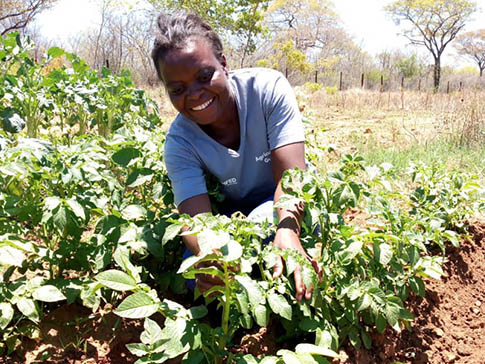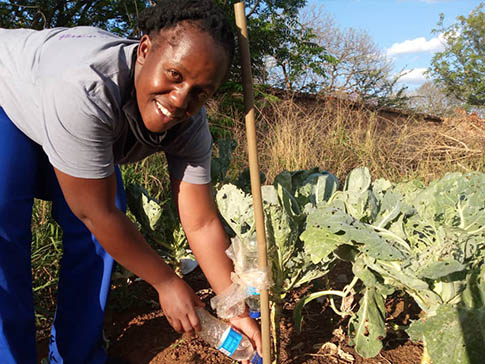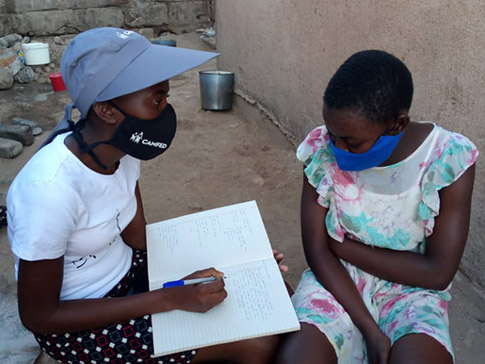
Agriculture Guide training takes place across Zimbabwe

This month, training sessions for 160 new CAMFED Association Agriculture Guides have taken place in 8 rural districts across Zimbabwe.
This marks a significant expansion of our award-winning Climate-Smart Agriculture Guide Program, through which young women are reaching thousands of people — mainly women — in our partner communities with techniques, information, and affordable technologies for climate-smart agriculture.
I think the Agriculture Guide Program will lead us to a point where women will be able to sustain themselves and their families. I see these practices being adopted in the communities, by government ministries, and even across Africa.
Vivian Chisenga, CAMFED Core Trainer of Agriculture Guides, Zimbabwe
Young women Agriculture Guides cascade both Indigenous and innovative techniques to help improve the productivity, sustainability and profitability of small-holder farmers. The newly-trained experts are vital as we enter a new strategic phase, during which we will reach many more families, and, together, multiply the number of children who can go to school, learn and thrive.
During the training sessions in districts including Beitbridge, Chikomba West, Kwekwe, Shurugwi and Umzingwane, CAMFED Core Trainers and other established agriculture experts stepped up to share techniques such as drip irrigation, which recycles used plastic bottles, as well as mulching, tree planting and agroforestry. These methods can make all the difference to farmers facing ever greater climate-related challenges, including droughts. Mulching helps to prevent water evaporating from the soil, whilst planting trees with long roots helps to draw water up towards staple crops.

Senior farmer Beauty Gombana – who inspired the CAMFED Garden – led the training in Kwekwe. (Photo: Sinikiwe Makove/CAMFED)

CAMFED Core Trainer Vivian Chisenga demonstrates how to recycle plastic bottles in a drip irrigation system. (Photo: Sinikiwe Makove/CAMFED)
I am proud to be an Agriculture Guide. This will help me to improve the food security in my family, in my community, and in the schools surrounding.
Elizabeth Tushwe, CAMFED Association member and newly-trained Agriculture Guide, Zimbabwe
Eager to begin their outreach, the newly-trained Agriculture Guides lost no time in demonstrating their commitment. In Kwekwe the young women donated 20 fruit trees to a local high school, and in Beitbridge they started carrying out verification visits to identify beneficiaries of food support via the CAMFED Association Philanthropy Fund.
As CAMFED Association members, these young activists are already known and trusted for their expertise in supporting the most marginalized children. At a time when the COVID-19 crisis has heightened challenges in our partner communities — including hunger as a result of lost household income — the role of our Agriculture Guides in improving food security is key to ensuring families thrive and children remain in education.

Agriculture Guide Kgawelo speaks to a girl about her challenges, specifically hunger.
